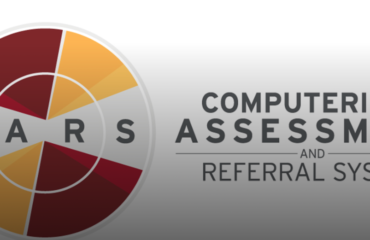Justice Speaks Podcast Episode #29
The shibboleth “Tough on Crime” is one politicians find quite appealing. The problem is that being tough–without being smart and effective—makes the community less safe and also costs money better spent on other services that have been squeezed dry by the global financial crisis. Smart on Crime while not as politically appealing, is factually more effective.
Three Strikes
California, for example, enacted the toughest “three strikes” law in the United States. Not only did juvenile offenses count as strikes but the third strike could be a conviction of any felony. For instance, a 17-year-old who stole bicycles from two attached garages and at age 18 stole a candy bar could be sentenced to life in prison. How could that be? Felony strikes under that state’s law included not only violent crimes but “serious” offenses as well such as residential burglaries. Once convicted of a theft crime for which jail time was imposed, any future theft can be charged as a felony. Thus, the juvenile convictions for two residential burglaries, serious felonies that were strikes, and the theft of the candy bar was a felony so the Three Strikes law applied.

The California Supreme Court upheld such sentences for an offender who stole a slice of pizza and another who stole a DVD as the third strike. It was a distraught father whose daughter was murdered by a recent parolee who led the fight to enact the Three Strikes law. He also led the fight to modify it last year when he learned of the incredible human and economic cost the law had brought. Even the prison guards’ union supported the modification.
When prisons became so overcrowded in California that inmates were triple bunked in cafeterias, lawsuits challenging such conditions were brought against the authorities. Another major lawsuit challenged the lack of mental health treatment in custody. Thirty percent of California’s prison population of 119,542 has a mental illness. Despite spending upwards of $8.6 billion on prisons every year, the lack of services got so bad that two years ago the U.S. Supreme Court, hardly a bastion of soft-on-crime adherents, found the inhumane conditions constituted “cruel and unusual punishment” in violation of the 8th Amendment of the U.S. Constitution. The District Court judge’s order requiring better services and the release of 30,000 prisons to ease overcrowding must be complied with by December 2013. Failure to do so will subject the governor and other authorities “individually and collectively” to a finding of contempt of court.
Incarceration is a temporary fix
The current criminal justice system of “catch and release” is expensive and ineffective. While incarceration temporarily contains the problem it does not act as a general deterrent nor does it guarantee a crime free life for those who experience it.
There are many smart on crime strategies to address this problem from reduction of the prison population through community corrections to justice reinvestment initiatives. It is clear that people who end up in prison have social deficits that must be addressed if there is a hope of keeping them out of custody.
Most Effect Criminal Justice Initiative

The most effective criminal justice initiative in decades, drug treatment courts (DTC), began in Florida. A drug treatment court focuses on the alcohol and other drug dependence that acts as a catalyst for crime. The offender is offered the opportunity to participate in substance abuse treatment instead of going to prison. Over 30 years of research has shown that drug treatment courts not only reduce crime by as much as 35% but cost less than traditional court processes as well. The drug treatment court judge is the head of a team consisting of the prosecutor, defense counsel, treatment providers, community corrections officer, coordinator and case manager. Some teams include police, housing specialists, mental health care professionals and others representing services the offender may need. Working in a non-adversarial context, every team member weighs in on recommended incentives and sanctions for compliance or non-compliance with the participant’s treatment plan. The judge makes the final decision and engages with the offender to increase his or her internal motivation to do well. This matrix forces all members of the team to step outside their traditional role, an uncomfortable situation for some. There are over 3,000 drug treatment courts in the U.S. and in over 20 countries.
Smart on Crime saves lives
All of the states have adopted best practices by promoting drug treatment courts for alcohol and other drug dependent offenders as have the federal district courts. Smart on crime, not tough on crime, saves money, reduces crime and saves lives.
Get more articles like this
in your inbox
Subscribe to our mailing list and get the latest information and updates to your email inbox.
Thank you for subscribing.
Something went wrong.






